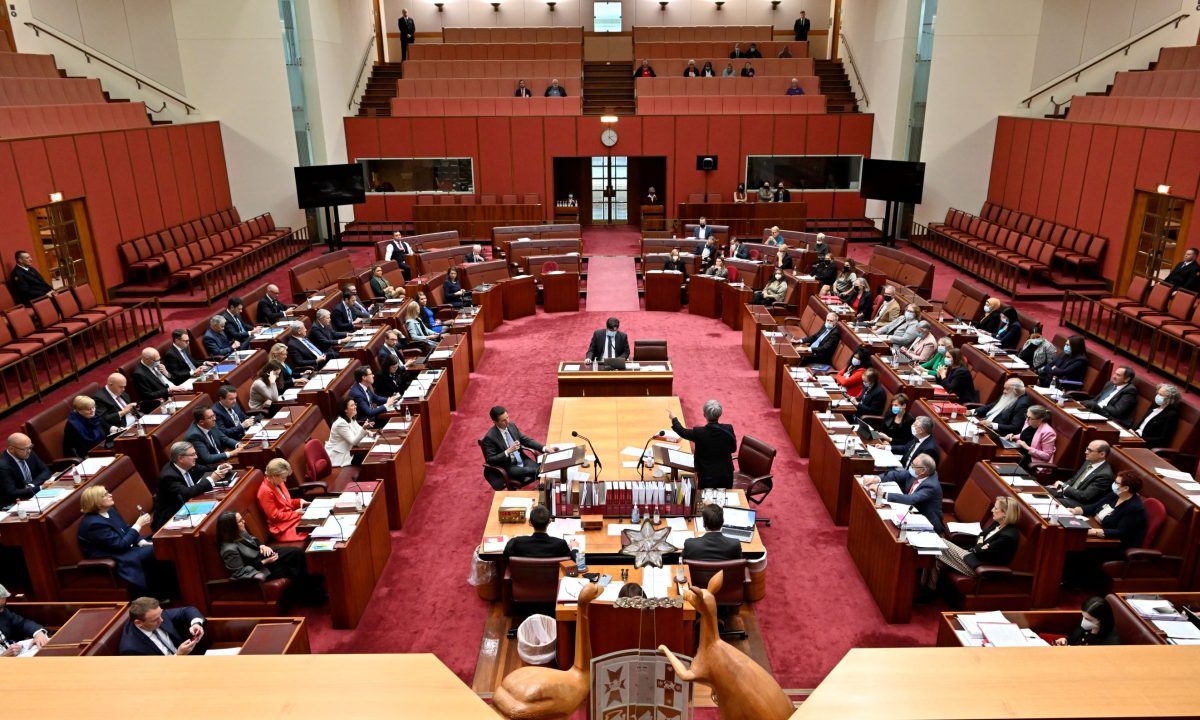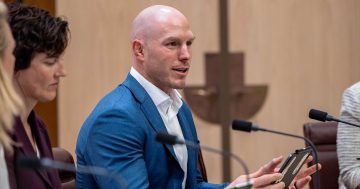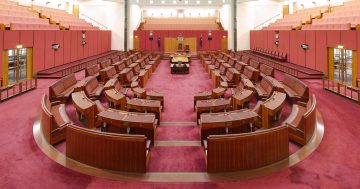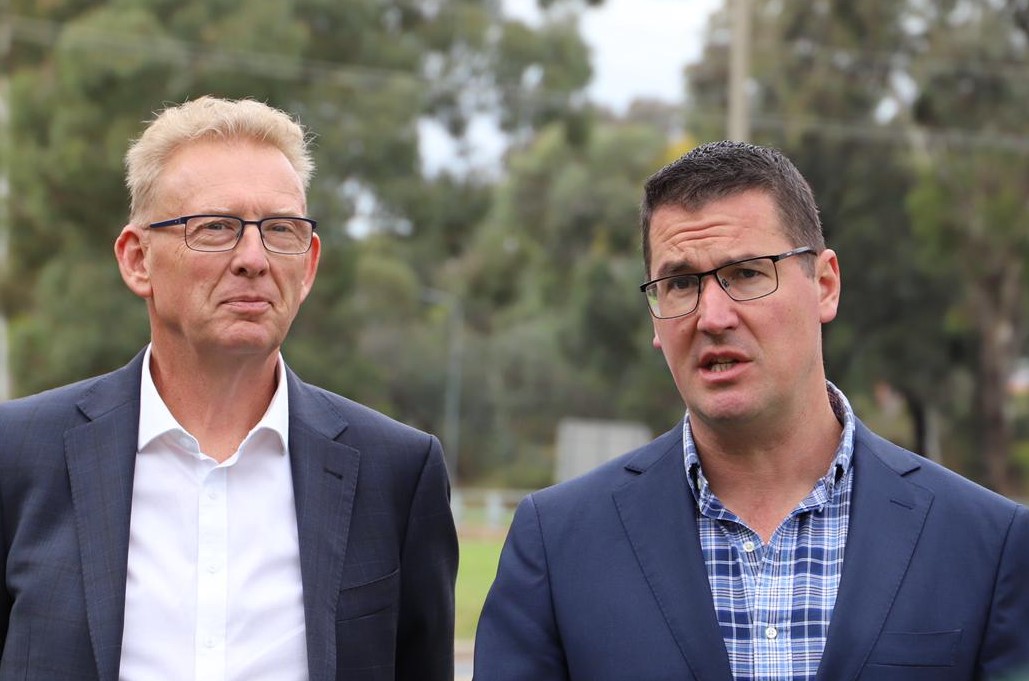
The States send 12 senators each to Canberra on six-year terms. The ACT has only two on three-year terms for a voter roll of 315,000. Photo: DPS AUSPIC.
Reports that Federal Labor is backing away from increasing the number of senators territories can elect have angered the Canberra Liberals and ACT Greens, while Chief Minister Andrew Barr is giving his federal colleagues the benefit of the doubt.
It appears increased Senate representation may have been shelved in haggling with the Coalition over electoral reform, including political donations.
The Coalition opposes increasing the number of senators, feeling the move would devalue state representation.
But Labor could force the issue in Parliament with the support of the Greens and ACT Independent Senator David Pocock, who always supported more representation for the ACT.
Questions to Special Minister of State Don Farrell, who is handling the negotiations, have gone unanswered.
States send 12 senators to Canberra, all on six-year terms. There has been no change to the two territory senators on three-year terms since they were first introduced in 1975.
The ACT’s senators represent 315,032 enrolled voters, the NT’s less than half that, while Tasmania has 402,871 voters.
A doubling of senators for the ACT would give the Canberra Liberals, which do not have any representation in the Parliament at all since losing its Senate seat to Senator Pocock, a greater opportunity to again represent its sizable vote.
President Nick Tyrrell called on Labor to use the numbers available to pass legislation.
“The Canberra Liberals will always stand up for the best interests of the ACT, and this includes fighting for better representation for the huge proportion of the electorate who feel unrepresented by the Labor Party which treats the Territory like a safe seat, and an independent senator whose voting pattern most closely matches Lidia Thorpe,” he said
“Labor can pass its legislation to increase the number of senators for the Territories, as enough of the crossbench supports it, so why are they wimping out?”
Another possible beneficiary, the ACT Greens, said Labor’s apparent backflip was incredibly disappointing, saying the ACT was the most underrepresented jurisdiction in Australia
“Canberrans deserve to have a Senate which represents our community’s diverse voices,” a party spokesperson said. “The Greens will continue to campaign for democratic reforms that will see a more democratic and representative Federal Parliament.”
Chief Minister Andrew Barr said there was still time for the Parliament to act, given the federal election is up to 10 months away.
“Based on our growing populations, the ACT Government is hopeful that in the Parliament’s next term a modest increase in Senate representation for the Territories will be endorsed,” he said.
Senator Pocock said people in the ACT had made it clear that they want the territory to have fairer representation in the Senate.
“The Territories have had the same number of senators for more than 50 years and the time for change is now,” he said.
“Our community has a huge amount to contribute to the big national debates and policy development and fairer representation in the Senate would strengthen our democracy.”
Senator Farrell has previously confirmed publicly that he was planning to introduce legislation to increase the number of senators by the end of this year but Labor may be seeking a deal on political donations.





















